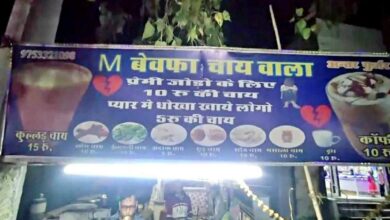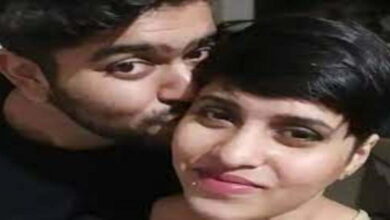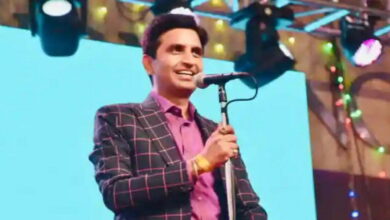Is the police the political army of the states?

The drama between the police of three states over the arrest of Tejinder Bagga, a BJP leader from Delhi and social media activist, is a big and visible symptom of a very serious disease. This is not just a clash of egos of two political parties or two or three states, but a sign of a much bigger threat to Centre-State relations, constitutional order and national security. The police have, however, been infamous for their bias and carelessness, but now it seems that they are turning into the political army of the states or the private army of the chief ministers. It is governed by the politics of Chief Ministers or ruling parties rather than law. This is a very dangerous situation.
If we look only at Bagga’s case, then many questions arise. Punjab Police has issued a warrant for the arrest of Bagga from a court in Mohali, why didn’t he do this earlier? Did the Punjab Police not know that a warrant is needed to arrest any person by going to another state? Did the Punjab Police not know that before arresting someone in another state, the local police had to report this action? Then why did she come to arrest Bagga without a warrant or with the local police? Similar questions are also regarding the action of Delhi Police. Why did the Delhi Police register a kidnapping case when the Delhi Police knew that Bagga was being taken to the Punjab Police? Is Punjab Police a hijacker? If there was no case of one political party, would the police of one state register a case of kidnapping against the police of another state? The way the Haryana Police gheraoed the Punjab Police in Kurukshetra, it also seems that it was not serving the search warrant issued a few hours ago by a Delhi court, but was satisfying the ego of its political masters. . If the police had been so careful about the orders of the courts, then the Chief Justice of the country would not have to say that the orders of the courts are not implemented.
Obviously the police of the three states became pawns in the confrontation between the egos of their political masters. This cannot be expected from an independent police system. The police is expected to decide on the merits of each case and act objectively. But in this case, the police took more care of the prejudices of the political parties than considering the merits. Soon after the incident, in a news channel program, former Director General of Police, Punjab, Shashikant had said, “With every promotion, police officers lose their two vertebrae and by the time they reach the top they have become stereotyped”. . This may not be true for every police officer, but a broader picture emerges from it.
The question is, is only the police responsible for this or is the political system more responsible than them? If the Chief Minister of a state wants the police to act according to his instructions and take action against his opponents, then the police officers cannot oppose it beyond a limit without risking their career. They can oppose the talk of political masters only at the cost of their career. One can prepare a complete list of police officers who destroy their career and personal life by refusing to obey the orders of the government. Police excesses are often discussed but the political system is responsible for that too. If the leaders of the ruling party use the police forcefully against their opponents, then they lose the moral right to prevent the police from committing excesses against anyone else. It cannot happen that on the orders of the elected government, the police act against its opponents beyond the limits of law and remain neutral and honest in other matters.
Unfortunately, politicians in India have taken the police as their personal or political army. They are using the police arbitrarily and even the police officers are blindly following what they say. Otherwise there was no reason why the Punjab Police would have filed a case against Kumar Vishwas, Tejinder Bagga or Alka Lamba or reached Delhi to arrest Bagga without a warrant. There was also no reason why the Delhi Police would have filed a kidnapping case against the Punjab Police. There was also no reason why the Mumbai Police would have filed a sedition case against MP Navneet Rana and her MLA husband Ravi Rana. Thousands of urgent and serious crime cases will be pending with the Assam Police, but the police there had traveled thousands of kilometers to reach Gujarat to arrest an MLA for one of his tweets. Only a few days ago, the country saw how the Bihar Police entered the Vidhan Sabha and beat up the honorable MLAs.
These are some representative incidents from which the picture emerges of how the police is becoming a weapon in the hands of politicians. Elected governments have started considering the police as their political army. Had it not been so, West Bengal Chief Minister Mamata Banerjee would not have ordered the state police to stop the Border Security Force (BSF) personnel from working within a 50-km radius of the border. It has become a law that if the BSF’s radius is up to 50 km within the border, then whatever may be the opposition politically, it cannot be made a cause of confrontation between the police and the BSF. Think, what if the BSF is taking action inside the border and the police arrive to stop it? Wherever all the security forces have to work together for the first goal of national security, then where is the conflict between the security forces being increased.
Not long ago, the police of Assam and Meghalaya came face to face. Before that, there was a clash between the police of Assam and Mizoram over the border dispute. In the case of Bagga, there was a clash between the police of Punjab, Delhi and Haryana. In West Bengal and Punjab also, situations of confrontation between the police and paramilitary forces are being created. This situation will lead the country towards anarchy. If leaders continue to suffer in this way from intolerance and ill-will towards their egos and opponents, then the day is not far when the police of the states will be fighting amongst themselves and the police and paramilitary forces will be clashing. Somewhere paramilitary forces will nab the Chief Minister of a state, and somewhere the police of any state will nab the leader, minister or chief minister of the opposing party.






